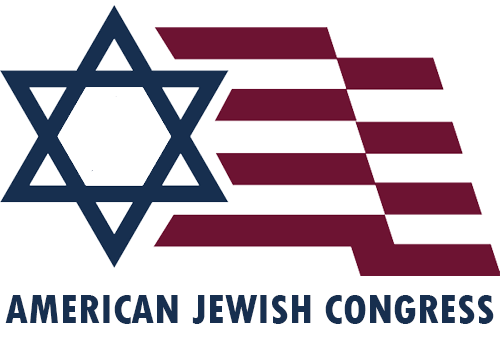By Daniel Rosen, President of the American Jewish Congress
Published originally in U.S. News & World Report.
The rise of antisemitism on U.S. college campuses that followed the Oct. 7, 2023, Hamas attacks on Israel has cooled down, at least on the surface. We aren’t seeing as many distressing videos as we did last year of protesters blocking Jewish students from parts of the UCLA campus, damaging a campus building at Columbia while yelling slurs or setting up an encampment in Harvard Yard and chanting “globalize the intifada,” a reference to violent Palestinian uprisings against the Jewish state.
But don’t be fooled. There is a fertile source of antisemitism on American campuses that lies under the hood. Windows aren’t being broken. Nazi swastikas aren’t being displayed on the walls of college dorms. Jewish ritual objects such as mezuzahs aren’t being torn off of doorways. Instead, some professors have turned their classrooms into hidden breeding grounds for anti-Israeli and antisemitic views.
As a 311-page report released last week by the Harvard University Task Force on Combating Antisemitism and Anti-Israeli Bias revealed, there is some deep-seated bias against Jews and Israelis in the lectures, books and other academic content of too many instructors. Harvard President Alan Garber, who is himself Jewish, said the 2023 Hamas attack on Israel and the subsequent war in Gaza brought tensions to the surface that had long festered under the radar, and promised to address them. According to The Wall Street Journal, the report concluded that there are some classes being taught “that denied historical facts in service to a political agenda,” stemming from years of “compromised scholarship, diminished intellectual standards on campus and biased curriculum.”
The report cited lecturers and other nontenured faculty involved in political advocacy and referred to a “laziness” around incorporating Jewish and Israeli perspectives when teaching about the Israel-Palestinian conflict, while at least one instructor denied Jews’ historical connection to the land of Israel, according to the Journal.
Unfortunately, this kind of propaganda masquerading as education is common at elite institutions. UC Berkley’s comparative literature department, for example, advertised a spring 2025 course that described the U.S.-designated terrorist organization Hamas, which has called for the annihilation of Jews, as “a revolutionary resistance force combating settler-colonialism.”
A course at Princeton University in 2023 included a book on its syllabus that falsely claimed the Israeli Defense Forces had been harvesting Palestinian organs, a lie that echoes the Medieval blood libel that Jews killed children to use their blood to make matzo at Passover.
At Columbia University, adjunct professor Lawrence Rosenblatt resigned in protest after Joseph Massad, an Arab politics and intellectual history professor who praised the Oct. 7 terror attackson Israel as “astounding” and “awesome,” was permitted to teach a course on the Jewish Enlightenment and Zionism this semester. As Rosenblatt put it, it was like “having a white nationalist teach about the U.S. Civil Rights movement.”
Most egregious classroom content has only come to light when students themselves have spoken up about it. So what we know right now may only scratch the surface of a far more expansive and profound reality.
Faculty and students deserve to know what is being taught at their institutions and the values their universities uphold. Ensuring transparency in course content is crucial not only to reduce the spread of antisemitism and other prejudices, but also to protect students, parents and faculty members who do not want to find themselves part of academic environments that promote indoctrination and hatred.
That is why the American Jewish Congress, the organization I lead, is calling on lawmakers to put forward a Syllabus Transparency Act that would require universities that accept federal or state funding to post their complete humanities syllabi online: course objectives, required readings, assignments and so forth. It was Louis Brandeis, the first Jewish U.S. Supreme Court justice (and one of the founders of the American Jewish Congress), who called sunlight “the best of disinfectants.” Syllabi must be brought into the light to see what students are being taught.
The Florida public university system has already begun scrutinizing courses for antisemitic content, and in 2022, the state passed a law mandating that public universities post their syllabi.
More recently, Florida issued a directive requiring each state university to review textbooks, exams and course materials for antisemitic content and anti-Israel bias. Ray Rodrigues, the chancellor of the state university system, told the Miami Herald that the directive was prompted by the discovery that a multiple choice test at Florida International University included “a question that said Jews invented terrorism.”
Other colleges have indicated they will take some steps in this direction, but we must keep the pressure on schools that have not shown a willingness to police themselves. Following demands from the Trump administration, for instance, Columbia University in March agreed to a review of its Middle East studies programs.
Some will argue that this infringes on academic freedom and amounts to the government dictating course content. Preserving academic freedom is important, even sacred. However, when faculty publish articles, those articles are in the public domain and are open for debate, even pillory. In contrast, what professors teach in the classroom is much harder to know and can be a breeding ground for bias and indoctrination.
To address this, we call on all colleges and universities to begin posting their syllabi and required reading lists online on a voluntary basis. Universities should welcome the robust debate that follows, which is central to their mission. We have no desire to restrict the exploration of new ideas. But that does not mean they should be exempt from visibility.
Legislation can and should make such transparency a requirement, with penalties for noncompliance, such as reductions in federal funding.
Harvard’s president issued an apology last week following the release of the report documenting antisemitism and a separate one on Islamophobia on campus. But had transparency been in place, these painful incidents could have been avoided in the first place. These institutions must stop letting the tail wag the dog.
(Photo Credit: ANDREW LICHTENSTEIN|CORBIS|GETTY IMAGES)





